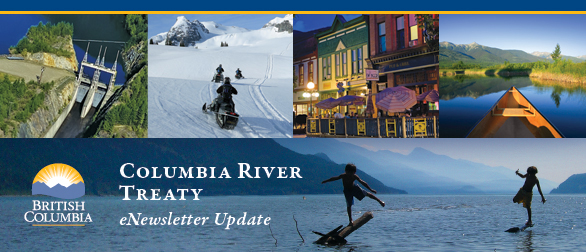Columbia River Treaty
Edition:

B.C.'s View of Called Upon Flood Control After 2024
Under the Columbia River Treaty, Canada sold to the U.S. the right to assured annual flood control operation associated with 8.45 million acre-feet (Maf) of storage space in Canada (Primary Flood Control). This sale expires on 16 September 2024, the earliest possible unilateral termination date of the Treaty. After 2024, the Canadian flood control operations will be provided to the U.S. on a more limited ad hoc, or “Called Upon” basis, subject to the provisions described in the Treaty. The Treaty, however, only provides general principles and does not provide any detailed procedures for implementing “Called Upon” flood control.
The Treaty does not explicitly use the terms “Called Upon” and “On-Call” for the ad hoc flood control provided under the Treaty for post-2024 and pre-2024, respectively. Instead this has become established terminology used by the Canadian and U.S. Entities due to differences in the residual storage volumes available and the cost recovery provisions pre- and post-2024.
In September 2011, the US Army Corps of Engineers released a White Paper on Columbia River post-2024 flood risk management procedure. It describes the U.S. perspective of what “Called Upon” flood control procedures would look like. The White Paper can be found here.
B. C. disagreed with some of the assumptions made in the US Army Corps of Engineers White Paper. In January 2012, BC Hydro responded to the White Paper. To view BC Hydro’s response, visit: gov.bc.ca/columbiarivertreaty.
BC Hydro has recently completed a paper entitled Canadian View of Columbia River Post-2024 Called Upon Procedures. The paper presents the Canadian view of the Treaty Called Upon provisions and general procedures for potential Called Upon operations. The paper will be available online later in February at gov.bc.ca/columbiarivertreaty.

